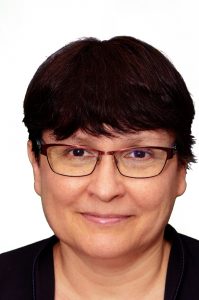
Edit Buzás
Semmelweis University
Hungary
EMBO Practical Course
Due to renewed restrictions related to the pandemic, we are unfortunately not able to host this course onsite. As a result, we are cancelling this course and apologise for the inconvenience.
A rapidly increasing number of researchers aim to purify and identify extracellular vesicles and many methodologies to isolate and analyse these vesicles are available and have been implemented. This course will cover the basics, possibilities and limitations of different purification and characterisation techniques and will address strategies to understand their role in biomedical applications.
This course is intended for PhD students and Postdoctoral researchers who are interested in learning how to work with extracellular vesicles and know more about their biomedical applications.
In this course we intend to make PhD students and post-doctoral researchers familiar with good-practice-guidelines and methods for purification and identification of extracellular vesicles with practical sessions included.
“This course was very informative and covers all the major aspects of EV research. It addresses questions of what level of quality is required for good publications but also offers relevant approaches towards analysing data and critical thinking in the EV field. Whether you are taking your first steps in this field or more experienced, this course applies to you.” – Dr. Berglind Eva Benediktsdóttir, University of Iceland, Iceland
“My research is focused on understanding the role of exosomes in the progression of glioblastoma. While working on exosome-mediated regulation of angiogenesis in glioblastoma, I found significant difficulties in getting a pure population of exosomes as it is often contaminated with other biomolecules. As a result, we were in delusion whether the data which we were getting was the effect of exosomes or other biomolecules. Fortunately, I found the EMBO Practical Course on extracellular vesicles, focusing on the isolation and purification of extracellular vesicles, which was extremely important for my research work. We were trained to use cutting-edge research tools for extracellular vesicles and learned bioinformatic analysis of biomolecules that are present in exosomes. I also got an opportunity to interact with world-leading researchers and discuss my research. ” – Abir Mondal, National Centre for Cell Science, India

Semmelweis University
Hungary
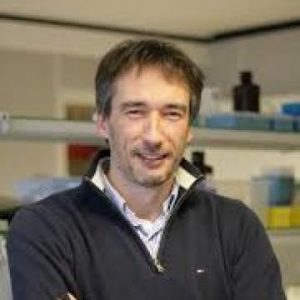
Ghent University
Belgium
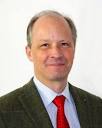
Paracelsus Medical University
Austria

Karolinska Institutet
Sweden
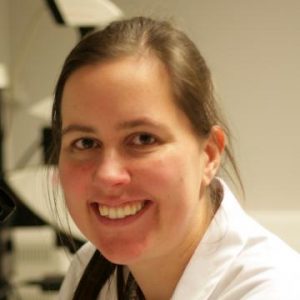
Ghent University
Belgium
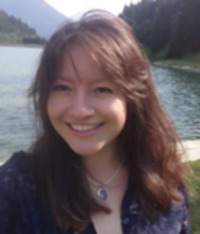
Institute of Psychiatry and Neuroscience of Paris
France
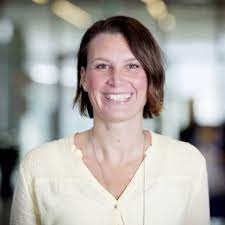
University of Gothenburg
Sweden
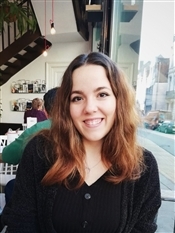
Utrecht University
The Netherlands
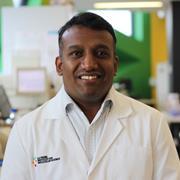
La Trobe University
Australia
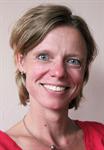
Utrecht University
The Netherlands
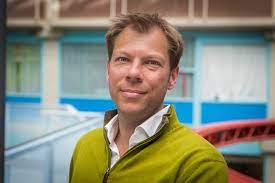
Amsterdam UMC
The Netherlands
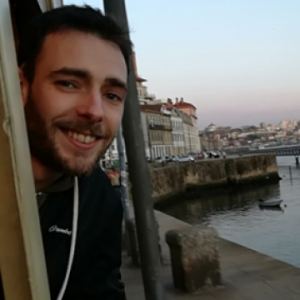
Ghent University
Belgium
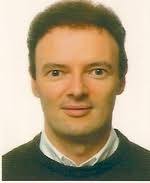
KU Leuven
Belgium
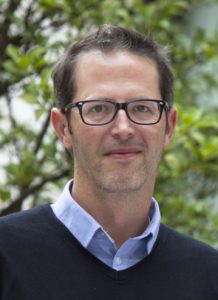
Institute of Psychiatry and Neuroscience of Paris
France
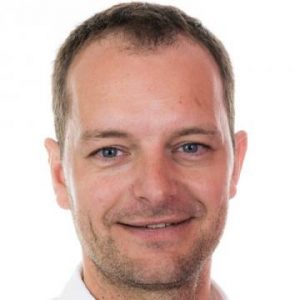
Ghent University
Belgium
Scientific Organisers

Ghent University
Belgium

University of Gothenburg
Sweden

Utrecht University
The Netherlands
Course Organisers
Got something to say? Tweet it with #EMBOEVs
The preliminary programme below is a draft and is subject to change.
| Time | Speaker | Location |
|---|---|---|
| 17:30 – 18:00 | Welcome & Introductions An Hendrix – Ghent University, Belgium Cecilia Lässer – University of Gothenburg, Sweden Esther Nolte-’t Hoen – Utrecht University, The Netherlands Guillaume Van Niel – Institute of Psychiatry and Neuroscience of Paris, France Elisabeth Zielonka – EMBL Heidelberg, Germany | ISG Hotel |
| 18:00 – 20:00 | Ice Breaker Flashtalks and journal club paper selection: group 1, 2, 3,4 | ISG Hotel |
| 20:00 | Dinner | ISG Hotel |
| Time | Speaker | Location |
|---|---|---|
| 08:00 – 09:00 | Daily testing | |
| 09:00 – 09:30 | House notes & Safety Introduction | Courtyard Room A & B |
| 09:30 – 09:45 | Outline of the day An Hendrix – Ghent University, Belgium | Courtyard Room A & B |
| 09:45 – 10:30 | Lecture: Heterogeneity in EV methods An Hendrix – Ghent University, Belgium | Courtyard Room A & B |
| 10:30 – 11:15 | Lecture: Heterogeneity in EV subtypes Edit Buzás – Semmelweis University, Hungary | Courtyard Room A & B |
| 11:15 – 11:30 | Coffee break | Flex Lab A & B |
| 11:45 – 12:00 | Introduction to practicals and separation methods An Hendrix – Ghent University, Belgium | Courtyard Room A & B |
| 12:00 – 12:30 | Lecture: Fluorescent labeling of EVs Esther Nolte-’t Hoen – Utrecht University, The Netherlands | Courtyard Room A & B |
| 12:30 – 14:00 | Lunch | Flex Lab A & B |
| 14:00 – 15:30 | Practical 1: Preparation of EVs by differential ultracentrifugation and fluorescent labeling An Hendrix – Ghent University, Belgium Maribel Lara Corona – Institute of Psychiatry and Neuroscience of Paris, France Cecilia Lässer – University of Gothenburg, Sweden Estefanía Lozano Andrés – Utrecht University, The Netherlands Esther Nolte-’t Hoen – Utrecht University, The Netherlands Quentin Roux – Ghent University, Belgium | Training Lab A & B |
| 15:30 – 16:15 | Lecture: EV biogenesis Guillaume Van Niel – Institute of Psychiatry and Neuroscience of Paris, France | Courtyard Room A & B |
| 16:15 – 16:30 | Coffee break | Flex Lab A & B |
| 16:30 – 17:15 | Lecture: RNA sorting in EVs Esther Nolte-’t Hoen – Utrecht University, The Netherlands | Flex Lab A & B |
| 17:15 – 19:30 | Practical 2: EV separation using Optiprep density gradient centrifugation An Hendrix – Ghent University, Belgium Maribel Lara Corona – Institute of Psychiatry and Neuroscience of Paris, France Cecilia Lässer – University of Gothenburg, Sweden Estefanía Lozano Andrés – Utrecht University, The Netherlands Esther Nolte-’t Hoen – Utrecht University, The Netherlands Quentin Roux – Ghent University, Belgium | Training Lab A & B |
| 19:30 – 20:30 | Dinner | |
| 20:30 – 21:30 | Student presentations | Courtyard Room A & B |
| 21:30 | Departure Hotel | ATC Entrance |
| Time | Speaker | Location |
|---|---|---|
| 08:00 – 09:00 | Daily testing | |
| 09:00 – 09:15 | Outline of the day Guillaume Van Niel – Institute of Psychiatry and Neuroscience of Paris, France | Courtyard Room A & B |
| 09:15 – 10:25 | Practical 3: EV separation using size exclusion chromatography An Hendrix – Ghent University, Belgium Maribel Lara Corona – Institute of Psychiatry and Neuroscience of Paris, France Cecilia Lässer – University of Gothenburg, Sweden Estefanía Lozano Andrés – Utrecht University, The Netherlands Esther Nolte-’t Hoen – Utrecht University, The Netherlands Quentin Roux – Ghent University, Belgium | Training Lab A & B |
| 10:25 – 11:30 | Continue Practical 2: Collect and process fractions from density gradients An Hendrix – Ghent University, Belgium Maribel Lara Corona – Institute of Psychiatry and Neuroscience of Paris, France Cecilia Lässer – University of Gothenburg, Sweden Estefanía Lozano Andrés – Utrecht University, The Netherlands Esther Nolte-’t Hoen – Utrecht University, The Netherlands Quentin Roux – Ghent University, Belgium | Training Lab A & B |
| 11:30 – 11:45 | Coffee break | Flex Lab A & B |
| 11:45 – 12:30 | Lecture: Quantitative and qualitative EV analysis by flow cytometry Marca Wauben – Utrecht University, The Netherlands | Courtyard Room A & B |
| 12:30 – 14:00 | Lunch | Flex Lab A & B |
| 14:00 – 14:45 | Lecture: Single EV analysis André Görgens – Karolinska Institutet Sweden | Courtyard Room A & B |
| 14:45 – 16:15 | Practical 4: Particle analysis (Malvern, Izon, flow cytometry) An Hendrix – Ghent University, Belgium Maribel Lara Corona – Institute of Psychiatry and Neuroscience of Paris, France Cecilia Lässer – University of Gothenburg, Sweden Estefanía Lozano Andrés – Utrecht University, The Netherlands Esther Nolte-’t Hoen – Utrecht University, The Netherlands Quentin Roux – Ghent University, Belgium | Training Lab A & B / Cell Culture / Microscopy rooms |
| 16:15 – 16:30 | Coffee break | Flex Lab A & B |
| 16:30 – 18:45 | Practical 4: Particle analysis (Malvern, Izon, flow cytometry) An Hendrix – Ghent University, Belgium Maribel Lara Corona – Institute of Psychiatry and Neuroscience of Paris, France Cecilia Lässer – University of Gothenburg, Sweden Estefanía Lozano Andrés – Utrecht University, The Netherlands Esther Nolte-’t Hoen – Utrecht University, The Netherlands Quentin Roux – Ghent University, Belgium | Training Lab A & B / Cell Culture / Microscopy rooms |
| 18:45 – 19:45 | Dinner | |
| 19:45 – 20:45 | Student presentations | Courtyard Room A & B |
| 21:00 | Departure Hotel | ATC Entrance |
| Time | Speaker | Location |
|---|---|---|
| 08:00 – 09:00 | Daily testing | |
| 09:00 – 09:15 | Outline of the day Esther Nolte-’t Hoen – Utrecht University, The Netherlands | Courtyard Room A & B |
| 09:15 – 10:15 | Exercise 1: All Data Analyis | Courtyard Room A & B |
| 10:15 – 10:30 | Coffee break | Flex Lab A & B |
| 10:30 – 11:30 | Lecture: EV characterization by transmission electron microscopy and western blot analysis Guillaume Van Niel – Institute of Psychiatry and Neuroscience of Paris, France | Courtyard Room A & B |
| 11:30 – 12:00 | Group activity: Tour of electron microscopy core facility with Q&A session | EM Facility |
| 12:00 – 12:30 | Group activity: Tour of electron microscopy core facility with Q&A session | EM Facility |
| 12:30 – 13:30 | Lunch | Flex Lab A & B |
| 13:30 – 14:30 | Practicals 5,6,7 in parallel | Training Lab A & B, Courtyard Room A & B, Flex Lab A & B |
| 14:30 – 15:30 | Practicals 5,6,7 in parallel | Training Lab A & B, Courtyard Room A & B, Flex Lab A & B |
| 15:30 – 15:45 | Coffee break | |
| 15:45 – 16:45 | Practicals 5,6,7 in parallel | Training Lab A & B, Courtyard Room A & B, Flex Lab A & B |
| 16:45 – 17:45 | Practicals 5,6,7 in parallel | Training Lab A & B, Courtyard Room A & B, Flex Lab A & B |
| 18:00 – 19:00 | Dinner | |
| 19:00 – 20:00 | Student presentations | Courtyard Room A & B |
| 20:15 | Departure Hotel | ATC Entrance |
| Time | Speaker | Location |
|---|---|---|
| 08:00 – 09:00 | Daily testing | |
| 09:00 – 09:15 | Outline of the day Cecilia Lässer – University of Gothenburg, Sweden | Courtyard Room A & B |
| 09:15 – 10:00 | Lecture: Impact of pre-analytical factors on EV seperation Cecilia Lässer – University of Gothenburg, Sweden | Courtyard Room A & B |
| 10:00 – 11:15 | Practical 8: Data Analyis An Hendrix – Ghent University, Belgium Maribel Lara Corona – Institute of Psychiatry and Neuroscience of Paris, France Cecilia Lässer – University of Gothenburg, Sweden Estefanía Lozano Andrés – Utrecht University, The Netherlands Esther Nolte-’t Hoen – Utrecht University, The Netherlands Quentin Roux – Ghent University, Belgium Guillaume Van Niel – Institute of Psychiatry and Neuroscience of Paris, France | Courtyard Room A & B |
| 11:15 – 11:30 | Coffee break | |
| 11:30 – 12:30 | Practical 8 continues: Data Analyis An Hendrix – Ghent University, Belgium Maribel Lara Corona – Institute of Psychiatry and Neuroscience of Paris, France Cecilia Lässer – University of Gothenburg, Sweden Estefanía Lozano Andrés – Utrecht University, The Netherlands Esther Nolte-’t Hoen – Utrecht University, The Netherlands Quentin Roux – Ghent University, Belgium Guillaume Van Niel – Institute of Psychiatry and Neuroscience of Paris, France | Courtyard Room A & B |
| 12:30 – 13:30 | Lunch | Flex Lab A & B |
| 13:30 – 15:30 | Practical 8: Presentation data analysis and discussion | Courtyard Room A & B |
| 15:30 – 15:45 | Coffee break | |
| 15:45 – 16:30 | Lecture: Functional EV analysis in vivo Michiel Pegtel – Amsterdam UMC, The Netherlands | Courtyard Room A & B |
| 16:30 – 17:30 | Student presentations | Courtyard Room A & B |
| 17:30 | Dinner |
| Time | Speaker | Location |
|---|---|---|
| 08:00 – 09:00 | Daily testing | |
| 09:00 – 09:15 | Outline of the day An Hendrix – Ghent University, Belgium | Courtyard Room A & B |
| 09:15 – 10:00 | Lecture: Transcriptomics Jo Vandesompele – Ghent University, Belgium | Courtyard Room A & B |
| 10:00 – 10:45 | Lecture: Separation of EVs from different biofluids Olivier De Wever – Ghent University, Belgium | Courtyard Room A & B |
| 10:45 – 11:00 | Coffee break | Flex Lab A & B |
| 11:00 – 11:45 | Lecture: Proteomics Suresh Mathivanan – La Trobe University, Australia | Courtyard Room A & B |
| 12:00 – 13:00 | Lunch | Flex Lab A & B |
| 13:00 – 13:45 | Practical 9: Practical/Bioinformatics Suresh Mathivanan – La Trobe University, Australia | |
| 13:45 – 14:00 | Coffee break | Flex Lab A & B |
| 14:00 – 14:45 | Practical 9: Practical/Bioinformatics Suresh Mathivanan – La Trobe University, Australia | |
| 14:45 – 15:00 | Coffee break | Flex Lab A & B |
| 15:00 – 15:45 | Lecture: Lipidomics Johan Swinnen – KU Leuven, Belgium | Courtyard Room A & B |
| 15:45 – 16:15 | Lecuture: Clinical application Mario Gimona – Paracelsus Medical University, Austria | Courtyard Room A & B |
| 16:15 – 17:45 | Excercise 4: Group activity/ Journal club | Courtyard Room A & B |
| 17:45 – 18:15 | Wrap up session | |
| 18:30 | Course Dinner |
The course is limited to 16 participants. For selection purposes, please note that your application will not be considered without a letter of motivation.
Registration Fees include admission, course materials, COVID-19 safety measures, meals and coffee breaks.
This EMBO course includes accommodation and transportation to and from the ISG Hotel to the venue.
| Academia | €500 |
| PhD Student | €500 |
| Industry | €1000 |
The registration fee should be paid only after acceptance to the course. The results will be announced approximately 2-3 weeks after the application deadline.
After you have logged in and successfully registered, you will receive an email asking you to submit your motivation letter. Click on the link provided and enter your motivation letter in the text box provided. Alternatively you can submit your motivation letter by clicking on the link on the confirmation page directly after registering.
Instructions
Please note:
For more detailed information, follow the instructions provided in our video on how to submit a course motivation letter.
For further information about registration and motivation letter submission please refer to the FAQ page.
Limited financial assistance is provided by the EMBL Advanced Training Centre Corporate Partnership Programme and EMBO in the form of both registration fee waivers and travel grants. Availability is limited to participants attending on-site events in Heidelberg and will be indicated during the abstract or motivation letter submission process.
Your place in the meeting is only confirmed by paying the registration fee, which is mandatory even when receiving a fee waiver.
The fee waiver will cover the registration sum that you have paid to attend the course or conference.
The travel grant will cover the cost of travel (airfare, train, bus, taxi, accommodation, visa, and/or registration fees*) and is provided up to specified caps which are normally as follows:
– up to €400 for participants travelling to an EMBL Course, EMBL Conference or EMBO|EMBL Symposium from within Europe.
– up to €1000 for participants travelling to an EMBL Course, EMBL Conference or EMBO|EMBL Symposium from outside Europe.
– up to €500 for any participant travelling to an EMBO Practical Course or EMBO Workshop.
– up to €1000 for any participant working in Chile, India, Singapore or Taiwan travelling to an EMBO Practical Course or EMBO Workshop.
*Registration fees are only covered for EMBO Practical Courses or EMBO Workshops
The organisers may reduce the grant cap to accommodate more participants. Recipients will be notified of their travel cap amount when they are informed of the outcome of their application. Original receipts must be provided with your signature for all costs incurred within two months of completion of travel. Scanned copies cannot be accepted.
For EMBO Practical Course or EMBO Workshop participants with children, there is the possibility to apply for a childcare grant to offset child care costs incurred by participants or speakers when participating at a course or conference. Eligible costs include fees for a baby-sitter or child-care facility, travel costs for a care giver, or travel costs for taking the child to the meeting etc. Please note that priority will be given to early stage researchers. A maximum amount of 500 EUR can be awarded per participant applying for an EMBO Childcare Grant. In order to apply for this grant for EMBO Workshops, you must be registered by the abstract submission deadline.
Applies to selected courses only. Availability will be indicated during the abstract or motivation letter submission process.
This grant covers costs related to your attendance to the course (registration, travel and accommodation costs). The grant is restricted to PhD students and postdocs who conduct basic biomedical research.
Whether you are eligible to apply for a travel grant, depends on when you received your university entrance qualification (e.g. Abitur, A-Levels, High School Diploma, Final State Examination):
– for PhD and MD students, as well as graduates, the university entrance qualification must not have been obtained more than 11 years ago at the time of the envisaged course
– for postdocs, the university entrance qualification must not have been obtained more than 13 years ago at the time of the envisaged course
You may apply for financial assistance when submitting your abstract for conferences. In your application, you will be asked to answer questions regarding why your lab cannot fund your attendance and how your attendance will make a difference to your career. Application for financial support will not affect the outcome of your registration application.
The scientific organisers will select the recipients of all financial assistance during the motivation letter or abstract selection process. Results will be announced approximately 6-8 weeks before the event start date, however for some events this may be delayed. Selection results do not impact your admission to the meeting. Selection is based on your current work or study location, the reasons for needing financial support and the impact this event will have on your career.
Costs will be reimbursed after the meeting only once a reimbursement form and original receipts (from travel costs) have been received.
See our list of external funding opportunities and information on attending a conference as an event reporter.
For further information about financial assistance please refer to the FAQ page.
Accommodation has been pre-booked for you at the ISG Hotel for the default dates of 12 to 18 March 2022 (6 nights). Please note that the course registration fee includes coverage of accommodation costs in twin rooms, including breakfasts, for your stay at the ISG but that you will be required to pay an additional cost of 21 EUR per night for a single room. This should be paid by you directly to the ISG during your stay. Any additional nights need to be booked and paid for by you. We recommend that all course participants stay at the ISG Hotel which is the dedicated hotel for the course.
Shuttle buses will go from the ISG Hotel to EMBL and back, mornings and evenings. A bus schedule and location of the bus stops will be made available prior to the meeting.
Address: EMBL Heidelberg, Meyerhofstraße 1, 69117 Heidelberg, Germany
For further information on getting to EMBL Heidelberg visit our Travel Information page.
For enquiries about accommodation and local transportation please refer to the FAQ page.
Below you will find the software and technical requirements for this course.
The EMBL eCampus learning platform will be used to collaborate, communicate and network with all of the course participants. All participants will receive information on how to join shortly before the course. We recommend using Chrome, Safari or Mozilla Firefox browsers for eCampus.
Please find additional information including FAQs, terms and conditions, COVID-19 safety policy and travelling to EMBL on our Information for Participants page.
Course sponsors
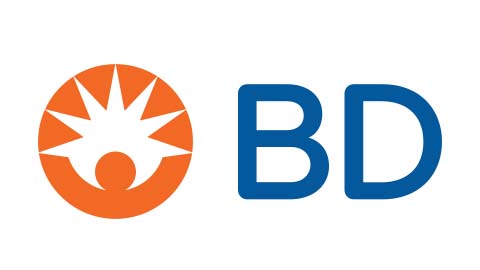
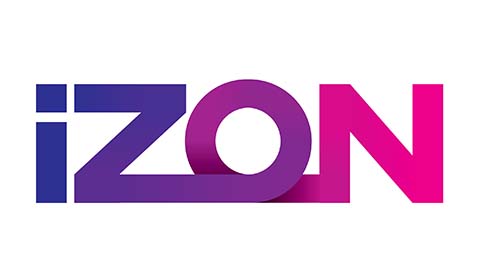
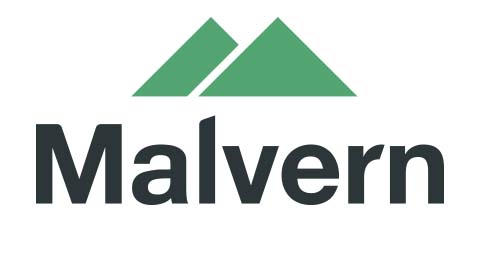
Sponsorship opportunities
We offer a variety of event sponsoring possibilities, with the flexibility to select a set sponsorship package or combine individual sponsorship options to suit your event budget. Discounts are available for companies sponsoring multiple events at EMBL Heidelberg. View other conferences, or contact sponsorship@embl.de for further information.
If you are interested in becoming a media partner of this event, please visit our media partnerships webpage.

Date: 13 - 18 Mar 2022
Location: EMBL Heidelberg
Deadline(s):
Application: Closed
Organisers:
Contact: Lea Hohmann